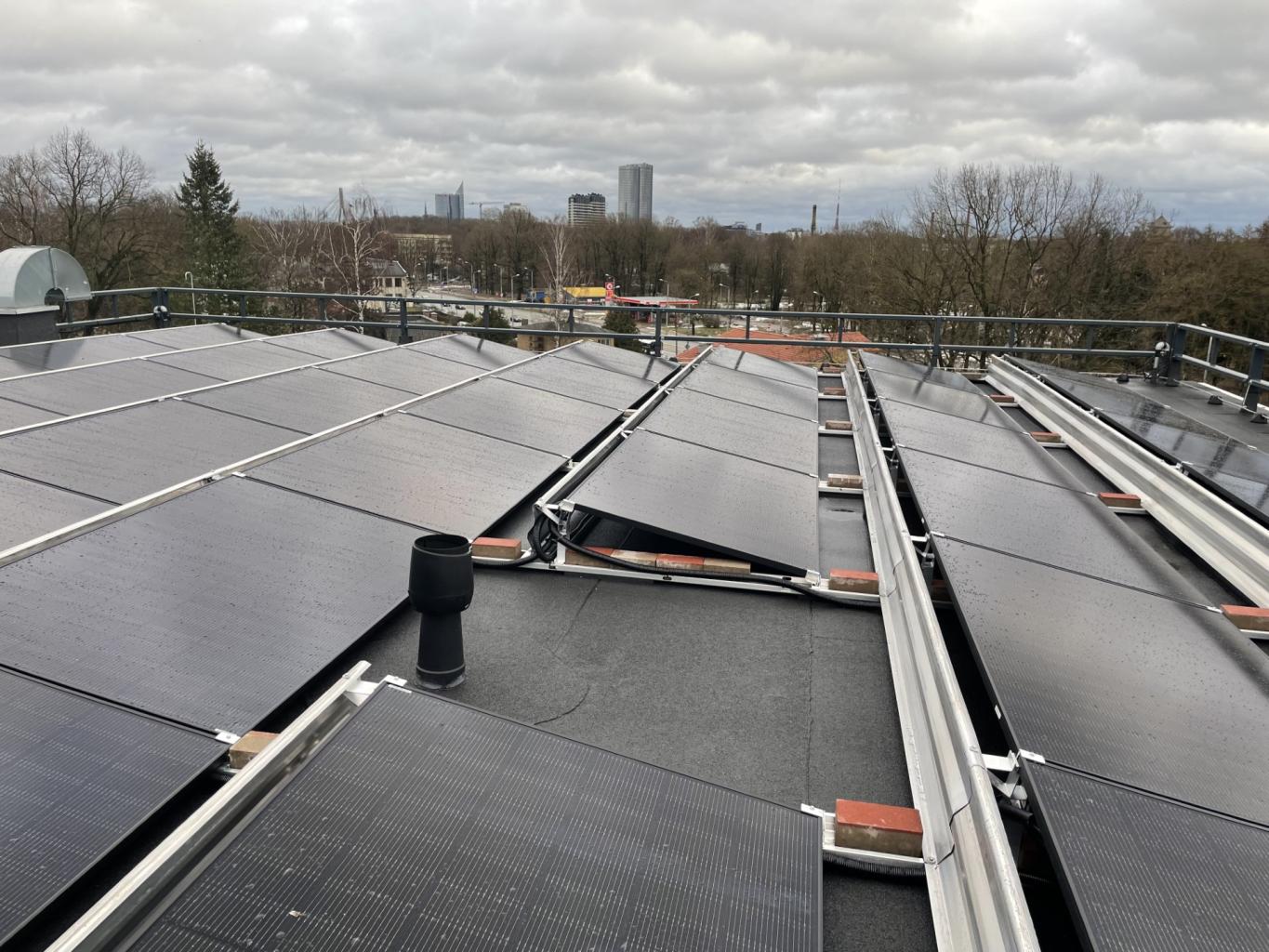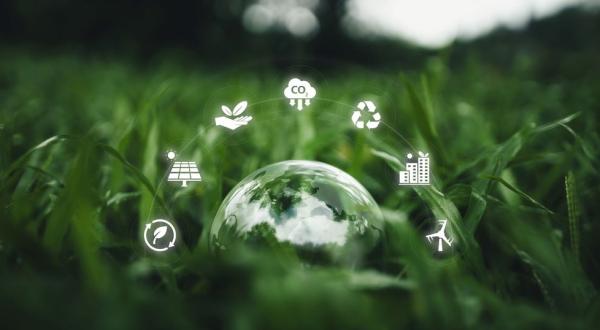Sustainability at RSU: lowered temperatures during heating season at night and on holidays generate significant savings
Linda Rozenbaha,
RSU Public Relations Unit
Lowering the temperature for heating on holidays and weekends, solar panel parks, and an electric vehicle fleet – these are the ways in which Rīga Stradiņš University (RSU) saves electricity while also taking care of environmental and resource efficiency and optimising expenses. We continue our series of articles on sustainability at RSU.
Andis Miončinskis, Head of the Technical and Transport Services Division at the RSU Infrastructure Department, explains that the electricity consumption and load of each building is constantly analysed to determine whether it is used optimally and what can still be improved. ‘For example, since 2017, RSU has implemented and certified an energy management system in accordance with the international ISO 50001 standard. This means that we record and analyse energy efficiency data and look for ways to further improve efficiency. Reducing temperatures at night and on weekends (when there are no lectures) results in savings in heat energy consumption at RSU,’ explains Miončinskis, adding: ‘If someone comes to work on weekends, they have to be aware that it may be a few degrees cooler (we reduce the temperature by three degrees, trying to even it out). I should also add that in some buildings, the energy supply can be regulated remotely.’
Currently, work is underway to install a centralised building management system at 26a Anniņmuižas bulvāris and 20 Dzirciema iela. Such a system will help to monitor the functioning of heating nodes and ventilation systems more quickly.
All new facilities are equipped with LED lighting, and light fixtures are also being gradually replaced in other RSU buildings. In the student dormitories on Dārza iela, a system has been introduced where the ventilation system operates at a reduced level when the person is not at home and air exchange increases when they are in the dorm. In this way, self-consumption in the building is significantly reduced. Meanwhile, in the building on Konsula iela, the ventilation tracks room occupancy based on CO₂ levels and is controlled at a higher regulation level. The solutions on Dārza and Konsula iela also help to improve air flow based on the presence of people in the rooms. This not only saves energy resources (devices do not consume unnecessary energy but operate only when needed), but also ensures air quality.
Both buildings also use passive energy-saving methods. For instance, external blinds have been installed on the south-facing facade. From an energy-saving perspective, these are much more effective than internal blinds. These blinds adjust according to the intensity of sunlight. Another aspect – lighting in common areas is regulated based on outdoor light intensity: the darker it is outside, the brighter the lights turn on inside.
We don’t just consume electricity – we also produce it
In 2023, the first solar panel park was installed at 30 Kristapa Street, and a second one began operating at Konsula Street at the start of 2024. In the 2024/2025 academic year, we will study 12 RSU sites to determine the scope and capacity of solar panel parks that can be installed, with implementation planned in the coming years, says Miončinskis.

Rooftop solar panels at 20 Konsula Street
Interestingly, the RSU community and visitors can also observe the solar panel park's performance. For example, on the roof of the building on Konsula Street, there is a solar panel park. On the first floor of the building, a video screen in the lounge area displays the current solar energy output. In this way, visitors become engaged.
We also plan to install solar panels at the RSU sports base in Taurene by the end of the year. There, we will deliberately choose a higher capacity system to produce energy that can be directed to any other RSU site, such as those in Rīga.
Electric vehicles introduced
We also think in an environmentally friendly way when building our vehicle fleet. “Currently, we have eight electric vehicles in use. By using electricity in this way, we can also see the benefit – by not burning fuel, we reduce our carbon footprint,” says Miončinskis.
Electric vehicles are used for both shorter and, as far as possible, longer trips. “For example, you can’t make a round trip to Liepāja without charging the vehicle – for that to work, too many conditions would have to align: air temperature, driving speed, cabin temperature. I believe that the next electric vehicles we’ll receive in about two years will already be able to make longer trips without needing to recharge,” Miončinskis predicts.
He says that twice a year the Infrastructure Department sends out informational emails to educate and remind RSU staff about key aspects of energy efficiency in RSU premises.
Miončinskis emphasises: “Step by step, with each small or large act of energy saving, we reduce our carbon footprint and save natural resources. I want to stress that not only is RSU’s sustainability strategy important, but also the actions of each individual. For example, if you see damage to a device, it is important to report it to the Technical and Transport Services Division – don’t be shy! If it's too hot in a room during the heating season – let us know. Likewise, the last person to leave their office should switch off the lights and monitor – if everyone did that at the end of the day, we would definitely see savings. Every action matters.”
Related news
 The European Green Deal and three possible future scenarios: how to live on our pathway to climate neutrality?Sustainable Development, Research
The European Green Deal and three possible future scenarios: how to live on our pathway to climate neutrality?Sustainable Development, Research


